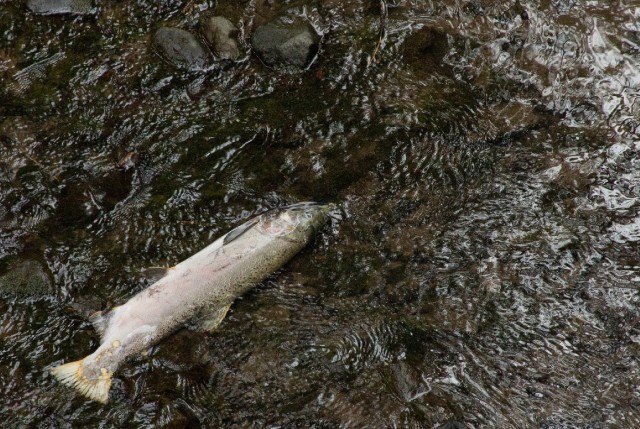The U.S. Bureau of Reclamation announced Friday that it will release water over the next several weeks to aid chinook salmon on the Klamath and Trinity rivers — a move that native tribes on the river have lobbied for to prevent a repeat of a catastrophic die-off that killed tens of thousands of fish headed upstream to spawn in 2002.
The tribes welcomed the bureau’s decision, which involves releasing about 25,000 acre-feet of water into the Trinity River from Lewiston Dam, northwest of Redding starting Saturday morning and continuing through Sept. 14.
But the Westlands Water District and the San Luis & Delta-Mendota Water Authority, which serve thousands of farms in the San Joaquin Valley, immediately announced they will seek a temporary restraining order to stop the releases. The federal court in Fresno that will hear that motion notified the agencies that no action is likely before Tuesday evening.
As recently as three weeks ago, the bureau said it would not consider emergency water releases unless scientists saw signs that a die-off, caused by pathogens that thrive in warm, slow-moving water, was under way. But the agency signaled last week it might reconsider after members of the Hoopa Valley and Yurok tribes had an impromptu meeting in Redding with Interior Secretary Sally Jewell. The tribes, along with environmental and fishing groups, argued that low flows and warm water on the river have created perfect conditions for a die-off of chinook salmon.
“For them to turn around and release the flows in this emergency situation is certainly a win for the fish,” said Robert Franklin, senior hydrologist with Hoopa Valley Tribal Fisheries, after the bureau announced its decision. He added that the planned release should be effective in heading off a deadly complex of maladies, especially a condition called gill rot and a parasite known as Ich (for Ichthyophthirius multifiliis) that can kill salmon.

